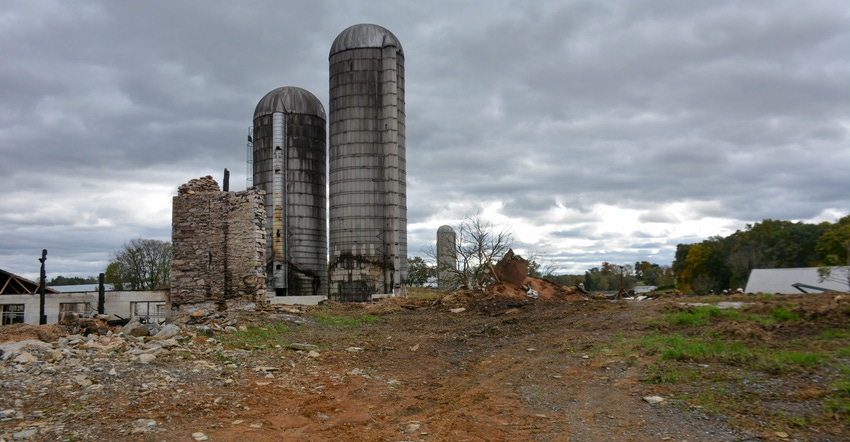October 24, 2019

Without farmers, nobody eats. Without first responders, people die.
In many places, like where I live, some farmers are the first responders.
But what if the first responder doesn’t know farming, and there are animals trapped inside a burning barn? Should the first responder allow the farmer to get the animals out?
It’s a nightmare scenario that unfortunately played out on a warm, late-summer evening near my home in Richland, Pa., in September: A dairy farm burned to the ground, tempers got short in the heat of the moment, and the dairy farmer was arrested.
Tim Getz, 35, who was trying to get as many cattle as he could out of his family’s two-story bank barn that caught fire, is now facing three criminal charges for allegedly hitting a state police trooper, as the trooper attempted to get him out of the burning barn. Tim was arrested during the fire.
Arrest controversial
The incident has sparked outrage in my hometown. Nearly 40,000 people have signed a petition on change.org asking for the charges to be dropped against Tim Getz.
Fundraisers have been held to raise money to get the bank barn rebuilt.
The fire killed 24 animals, including 14 cows, eight yearling heifers and two calves. The second story of the bank barn, where bales of hay were stored, is a burned-out shell, with debris from the fire still strewn over the ground. The family is slowly cleaning up what the fire damaged, getting ready to rebuild “soon.”
The rest of the cattle are being temporarily housed at a farm 5 miles away. The herd numbered 65 cows and dry cows, with 40 head of young stock and heifers.
The timing of the fire couldn’t have been worse, especially considering the family has been struggling to keep the business afloat in these tough dairy times.
Family to rebuild
I talked to Todd Getz, Tim’s brother, who has sort of become the family’s spokesman. He insists the family will rebuild and get back to normal business at some point.
“We’re amazed and humbled by all of the support,” Todd told me recently by phone.
“Throwing in the towel” was something he and his family have considered, but the cost to rebuild is low enough that they’re going to give dairy one more try.
“Maybe the market will turn around and things will get better, and we'll be all right,” he says. They’ve even talked about adding poultry houses to diversify, something several of the area’s dairy farms have done.
Looking back, Todd insists that his brother was only trying to get his animals out, and that he wasn’t trying to hurt anyone. He says that neither he nor his brother have ever been in trouble with the law, short of a few parking and traffic tickets.
The only thing Todd regrets is not being able to get more animals out of the barn.
Plans for educational days
Carrie Boyer, who describes herself as a lifelong friend of the family but not a farmer, says she’s organizing two educational days with the goal of getting first responders and farmers together to talk about emergency situations.
“The goal that we’re looking at here, is because we realize that first responders don’t have firsthand experience, it’s difficult to understand a different perspective — so the goal is to get together first responders and the ag community to come together to try to educate first responders on … different types of barns, milking setups and other things,” she says.
Most importantly, though, is the chance for first responders to get points of contact from local farms, so they know who to talk to when an emergency occurs.
What’s Todd’s advice to other farmers? Get a written emergency or fire plan on paper, and try to get local authorities involved.
I’ve been to several farms, most notably large grain farms, that are very diligent about communicating with local first responders about where chemicals are stored. This is good information for a first responder to have, because when an emergency arises, there is no time to get up to speed on how a farm operates.
Penn State has tips on how to develop an emergency plan with first responders at bit.ly/psufarmemergencyplan.
You can also find resources at bit.ly/farmemergencyprep or bit.ly/readymakeaplan.
As for Tim Getz, his preliminary hearing, which was originally set for early October, has been pushed back.
But if there is a lesson to be learned here, it’s that farmers and first responders should find ways to communicate regularly.
This is a significant story because these types of situations rarely occur. Let’s hope it stays that way.
You May Also Like




